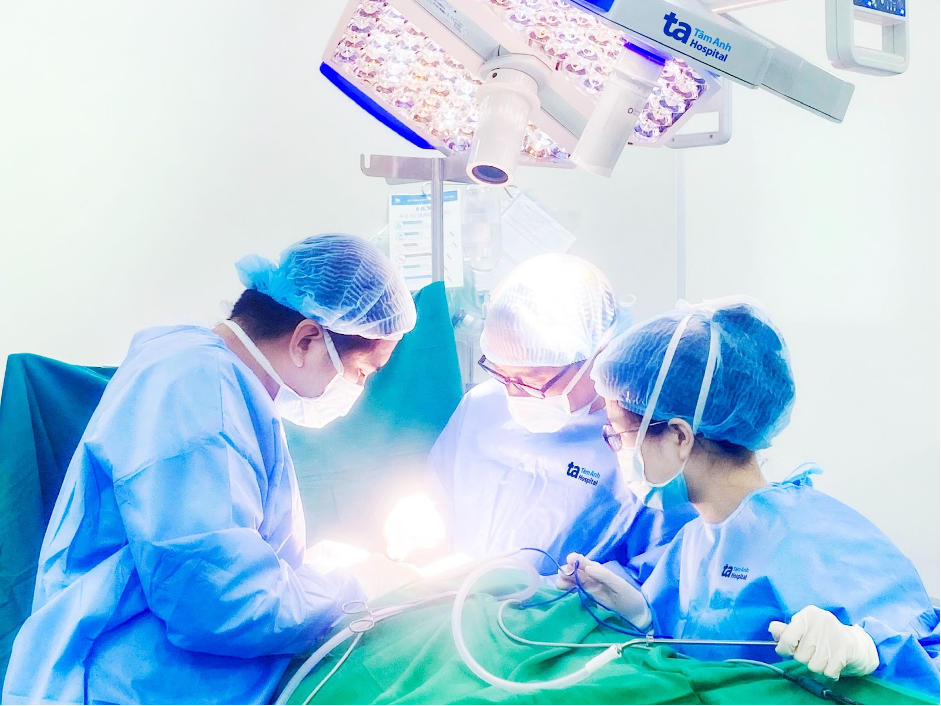A CT scan of Toan's face revealed a 4.5 cm tumor extending to the deep lobe of his left parotid gland. A biopsy confirmed it was benign, but its size and deep location presented challenges. Dr. Do Tuong Huan, from the Department of Breast - Head and Neck Surgery at Tam Anh General Hospital in Ho Chi Minh City, explained that the facial nerve's branches run deep within the parotid gland, making surgery complex when a tumor compresses these nerves.
Doctors opted to surgically remove the tumor while preserving the facial nerve to prevent post-operative facial paralysis. The surgical team exposed the left parotid gland, located the facial nerve at its root, and carefully separated its five branches to access the superficial lobe and expose the deeper lobe containing the tumor. They then lifted the facial nerve network and excised the deep lobe along with the tumor.
Post-surgery, Toan experienced temporary mild paralysis of his facial and great auricular nerves, expected to resolve within a few weeks. He had no complications, and the post-operative pathology confirmed a benign tumor.
 |
Dr. Huan (center) and the surgical team removing Toan's large parotid gland tumor. Photo: Tam Anh General Hospital |
Dr. Huan (center) and the surgical team removing Toan's large parotid gland tumor. Photo: Tam Anh General Hospital
The parotid gland is the largest of the three major salivary gland pairs, which include the parotid, submandibular, and sublingual glands. These glands secrete saliva into the mouth. The facial nerve, which controls facial expressions, passes through the parotid gland.
Parotid gland tumors are a type of salivary gland tumor. The exact cause is unknown, but risk factors include viruses, parotid gland stones, genetic mutations, radiation exposure, and lifestyle factors like smoking, high-fat diets, and high cholesterol. These tumors can affect both adults and children, and early detection and treatment lead to better outcomes.
Parotid gland tumors often grow slowly over years, painlessly, without skin discoloration or infiltration. If you notice swelling or enlargement in the parotid area, difficulty chewing or swallowing, or any asymmetry compared to the other side, seek immediate medical attention. Regular health checkups can also help detect these abnormalities early.
Minh Tam
*The patient's name has been changed.
| Readers can submit questions about cancer here for doctors to answer. |












